The pathway of the CIM project
Last year, a five-day course, a workshop, was organised in Palermo, Italy, in December, focusing on the use and experience of the Design Thinking approach and its theoretical implementation as a bridge between universities and companies.
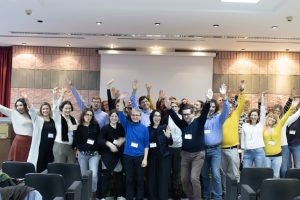
Experts from nine European countries took part in the workshop and ran through various cycles as a practical self-test, according to the motto: “Knowing how to inspire others”.
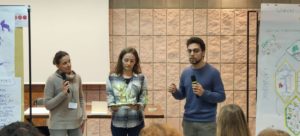
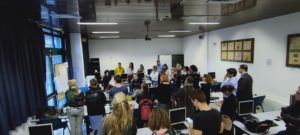
Based on this self-made experience, each partner started to adapt their course, broadened their training and created new seminars that included the Design Thinking approach.
The field of participants ranges from Portugal to Germany and Lithuania, from southern Italy to Greece, Bulgaria, Austria and Belgium and even north to Ireland.
Even with COVID 19, the project could not be slowed down and additional approaches to reach students, universities and companies were designed.
Here are some of their stories:
Greece
Within the ‘Creativity and Innovation Management Project’ , AUTH developed a PG course that focuses entirely on creativity and innovation in adult and continuing education programme design, implementation and assessment. The course includes an internship mobility unit that is organised in collaboration with a company from the tourism industry and focuses on the development of innovative educational tourism programmes.
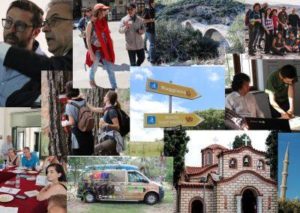
Italy
The aim of the CIM learning programme applied in the work environment of CESIE is to complement and enrich the basic traineeship experience, focused on Project Management, with learning activities aimed at developing specifically Creativity and Innovation skills of the interns and the staff. At the end of the learning programme, the interns acquired a set of transversal CIM competences in the following areas:
- Teamwork
- Design Thinking
- Project management and implementation
- Project design
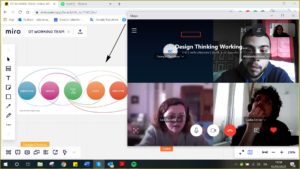
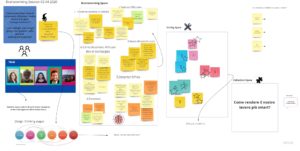
Lithuania
As part of this project, interdisciplinary groups of students were undertaking longer or shorter internships at various hosting companies in Lithuania where they along with the academic and company supervisors were working with “real life” company issues / challenges.
At the preparatory stage each group received 24 hours’ training in 5 days with particular focus on certain competences and skills, such as interdisciplinary team work, creativity, problem solving and analytical skills by using design thinking, Lego rim to play and Business Model Canvas methodologies.
Usually dealing with business sustainability issues.
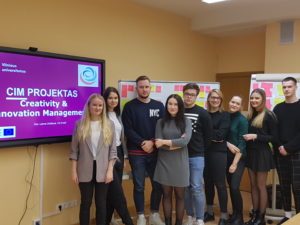
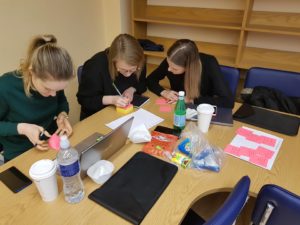
Bulgaria
2nd year undergraduate students in the Faculty of Economics and Business Administration follow a 60 ECTS course (two semesters) in Business projects in an international environment. As part of the course, those students undergo an internship at the Career Centre of FEBA, where they fulfil various tasks. A year-long objective of all students is the organisation of a career fair involving dozens of companies and most of the students in the Faculty. The group of 16 highly motivated students is divided into 4 teams with different focus of activities. Each team follows a yearly plan and regularly updates their supervisor on their progress, while working mostly independently.
- Team 1 – Career fair – In charge of the overall organisation of the career fair, logistics, placement of company stands, pricing etc.
- Team 2 – Communication – responsible for the communication between the Career centre and the students. Mobilising the student community.
- Team 3 – Content – Preparing content for the Career fair – plans for the location, photos, statistics; invitations; countdowns (Facebook posts).
- Team 4 – Event masters – taking care of the fan page of the Career centre in Instagram. Instagram was selected as most students consider Facebook an outdated channel.
And even in COVID 19 times the CIM partnership updated their concepts and developed the approach further and further, like the 2-day event – as a complete online workshop! The preparation of the programme and the use of various tools for testing and trial purposes offered the almost perfect opportunity to merge online communication with creativity and innovation. The concept and the implementation were, of course, not created in one night, but already at the end of June and also at the beginning of July the ideas were put into practice.
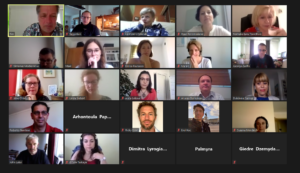
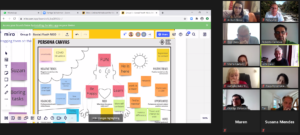
Stay tuned for further developments of the CIM project …
